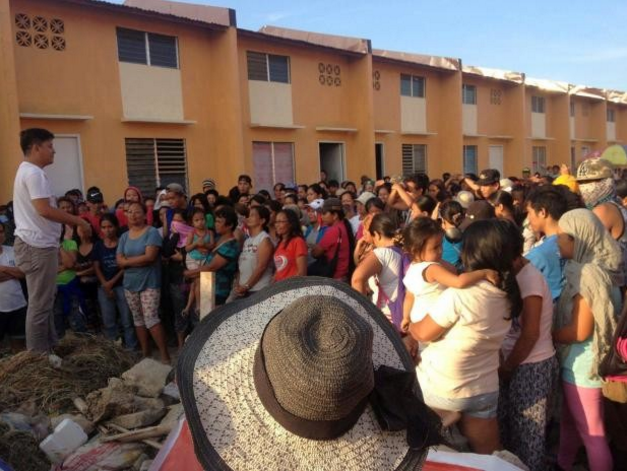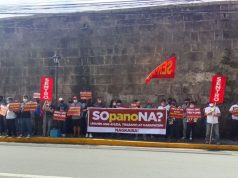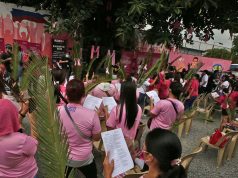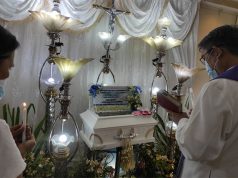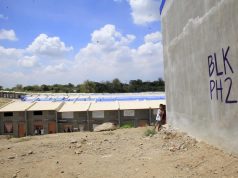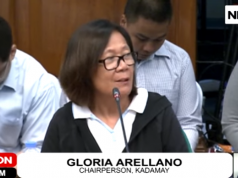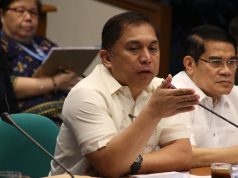MANILA, Philippines – The Kalipunan ng Damayang Mahihirap (Kadamay) is appealing to journalists to be objective and responsible in reporting about the plight of the urban poor amid the latter’s daily difficult battle of meeting their basic survival needs.
“The urban poor of the Philippines are fighting a hard battle. They have to battle everyday just to find a means to survive. They shouldn’t have to battle for the respect that they deserve as a human beings,” said Kadamay in a press release on Thursday, April 20.
The group issued the statement after it complained about an alleged “misleading” report by a media organization (not InterAksyon-News5) supposedly implying that Kadamay members were complaining about the idle housing units in Pandi, Bulacan that they earlier occupied and afterwards awarded to them by President Rodrigo Duterte.
“(N)ews reports imply that Kadamay is being whiny about the units when in fact they are the only ones making do with homes that have been deserted,” the group said.
The report, according to Kadamay, quoted the group’s president Bea Arellano as saying that the housing units in Pandi were too small and were only good for dog houses of politicians.
Kadamay said the actual quote by Arellano was, “ Ang nakakatiis lang po sa ginawa ng NHA eh mga mahihirap lang po eh, ang liliit at sira sira na. Baka sa inyo, kwarto lang ng alagang aso ‘yong mga ginawa nila doon.”
[The only ones who can make do with the small and defective residential units built by the National Housing Authority (NHA) are the poor. Maybe for you, those units there are only good for the houses of your pet dogs.]
‘Irresponsible journalism, bordering on the malicious’
Kadamay clarified that Arellano was “merely stating facts.”
“The housing units are substandard; they are very small, broken down, and lacking in basic utilities. Despite this, the urban poor still occupy these houses because they do not have any other choice,” the group said.
“No one but those who have been pushed to desperation would willingly choose these housing units. Our dear senators might not even see these units as fit for anything else but pets,” added Kadamay.
It said “irresponsible journalism, bordering on the malicious, places those who are vulnerable in an even more precarious situation” and “makes it harder for” the urban poor “to win the support they need in order to assert and win their rights.”
“We ask the media this: listen to what the urban poor are actually saying, and not to what internal or social prejudices are dictating,” said Kadamay.
Kadamay has drawn flak for the takeover of housing units earlier meant for soldiers, policemen and other State workers, without going through the usual legal channels. President Duterte first said he would have them evicted for their illegal act, but later changed his mind and asked the soldiers to just let the occupiers in Pandi stay put. He promised to look for a better site and build bigger homes for the soldiers.
Not asking for free electricity, water
Kadamay on Friday belied another report saying Kadamay members were asking for free electricity and water.
“This is not true. Kadamay is calling for direct connection to electricity and water service providers.”
According to the group, most relocation sites route utilities through either the NHA or the developer that “results in unreliable, expensive, and even dangerous delivery.”
Kadamay cited the cases in St. Martha Estate Homes in Bulacan wherein 10 cubic meters of water costs P 209 and in Camarin Residences, an in-city relocation project, wherein the same amount of water costs P 285.
“Most areas in Metro Manila would pay only P 97 for this amount of water. Why take more from those who already have so little?” said Kadamay.
Even “more alarming is the lack of concern for the health and safety of those who settle in these relocation areas,” according to the group.
It claimed that in September 2016, three-year-old Justine Billones, age and nine-year-old Lorraine Balon, allegedly died from the contaminated drinking water provided by Centennial Water Resource Center.
Kadamay alleged that “this happened after the provider assured the Saint Martha Relocatees Alliance that the water was safe and potable.”
To prevent similar tragedies from happening, Kadamay urged the government to carry out “direct connections” to basic utilities in relocation sites.
Offsite resettlement must be abandoned
Meanwhile, Terry Ridon, chairman of the Presidential and Commission for the Urban Poor (PCUP), supported Duterte’s decision to allow members of Kadamay to continue occupying idle houses in Bulacan.
“We believe that the President was guided by principles of social justice in making his pronouncement, and an affirmation of his firm commitment that the least of our people will never be left behind in this administration,” Ridon said in a recent statement.
He said the Bulacan incident “gives us further resolve to push for onsite and incity resettlement as the main mode of resettlement of informal settler families affected by public infrastructure projects, court orders or disaster-induced relocation.”
The PCUP chief said offsite resettlement “should be abandoned as a main mode of resettlement and should only be considered as a last resort, particularly in view of the costs of economic dislocation of informal settler families and the costs of creating an entirely offsite new township with full services, utilities and livelihood.”
“This is also an opportunity to push for a higher budget for housing, albeit better termed human settlements budget equivalent to one percent of the country’s gross domestic product, similar to international benchmarks given to other social services responding to basic needs like education, health and social welfare,” he said.
Ridon also wants personalities involved in allowing thousands upon thousands of housing units to lie idle for several years indicted “whether on the basis of myopic policy projections in site identification, or on the basis of outright grossly disadvantageous negotiated land sales, or on the basis of shoddily constructed housing units for maximum profit.”

